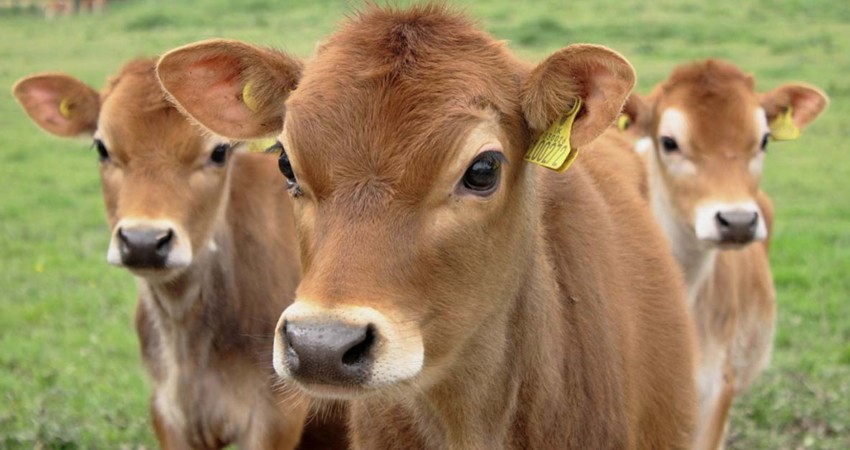

Severe, untreated scours can kill a calf in less than twenty-four hours. Frequent, runny diarrhea depletes the calf of necessary salts and water more quickly that he can replace it. If you are raising calves, do everything you can to prevent scours. While you can’t always prevent this illness, there are some things that you can do to reduce the chances of your calves coming down with it.
1. Make sure that your calves get colostrum.
Calves who don’t get colostrum shortly after birth are much more likely to come down with a bad case of scours. Additionally, calves of heifers who don’t have large quantities of good quality colostrum are more likely to scour. If you are dealing with a calf of a heifer, you may want to give the calf a colostrum supplement just to make sure he will stay healthy. If you are unsure that a calf that you bought received colostrum, you may want to ask your vet for a syringe of Poly Serum. This injection can help your calf develop some of the antibodies that a first feeding of colostrum would have given him.
2. Minimize feed changes.
Sometimes scours happen when the farmer changes the brand of milk replacer that he’s been giving the calf. Milk replacer isn’t something that you can switch out randomly. The calf’s system gets used to a certain kind, and changing it suddenly is hard on the calf’s digestion. If you do have to change brands, switch it gradually, mixing a little of the old milk with a little of the new, gradually increasing the amount of the new stuff.
3. Isolate sick animals.
Organisms that cause scours are extremely contagious. At the first sign of scours, isolate the sick animal. The diarrhea may be an isolated event, but it’s better to be safe than sorry when it comes to communicable diseases in your herd. Be very careful to clean anything that the sick calf comes in contact with. This means that your boots, gloves, and coat should be either cleaned or changed after handling the sick calf or cleaning its pen. If you don’t take care to keep clean, you risk infecting your other animals or even members of your family. Wash your hands with lots of soap and water after handling a scouring calf, and wash anything that the calf comes in contact with in hot, soapy water. This means calf bottles, esophageal tubes, water buckets, and feed pans. Don’t rely on bleach to sanitize these items, because bleach alone is ineffective in killing cryptosporidium, a common scour-causing organism.
4. Feed calves the correct amount of milk.
Scours can also be caused by feeding your bottle calves too much milk. When bottle calves finish their feedings, they may act like they are still hungry. If you feed the calf until he stops rooting and sucking, you may overfeed him. Pay attention to the recommendations on the bag to know how much milk to give your calf. Measure it according to the calf’s weight.
Calves that are nursing on their mothers are at lower risk for scours due to over-feeding, even if the mother has a plentiful milk supply. You should not have to limit the amounts that a calf eats if it is nursing on its mother. The calf will be able to sip all day from the milk bar and will not suffer any ill effects.
Do all that you can to keep scours from invading your herd. Not only does scours increase your risk of losing calves, it can also cause weeks of headaches and back-breaking, filthy work.
 Contact Jaguza Support
Contact Jaguza Support